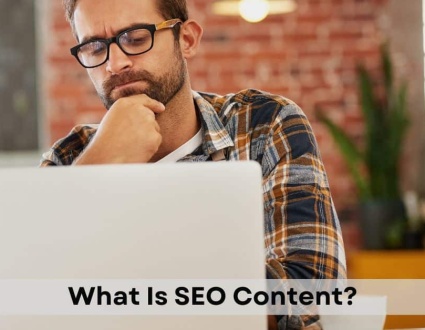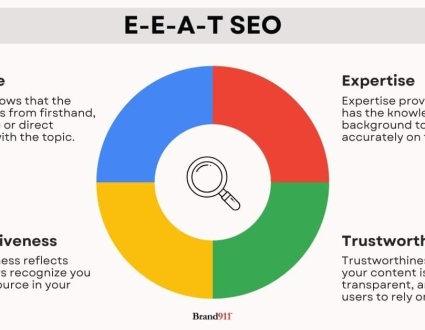Digital Marketing vs Online Marketing: What’s the Difference?
- July 28, 2025
- Digital Marketing
Many people use the terms “digital marketing” and “online marketing” like they mean the same thing. While they’re closely related, they’re not identical.
Knowing the difference can help you choose the right strategy, save money, and focus on what actually works for your business.
What Is Online Marketing?
Online marketing is the use of internet-based tools to promote your business and connect with customers. It includes everything from your website and blog to search engines, social media, and online ads.
If you’re trying to get found on Google, grow an email list, or engage people on Instagram, you’re using online marketing.
Over 96% of small businesses use social media promotion, 73% have websites, and more than 58–60% are active with online strategies. (ElectroIQ)
Many small businesses rely on online marketing because it’s cost-effective and helps improve your search visibility over time.
Key Online Marketing Channels:
Search Engine Optimization (SEO)
SEO helps your website show up in Google search results. It’s one of the most effective ways to attract people who are already looking for what you offer, especially with strong local SEO strategies.
Nearly half of all small businesses say SEO brings the best marketing ROI.
Pay-Per-Click Ads (PPC)
PPC ads appear at the top of search results or on social media platforms. You only pay when someone clicks, making it a flexible option for driving targeted traffic.
Social Media Marketing
This includes organic posts and paid ads on platforms like Facebook, Instagram, LinkedIn, and TikTok. It’s a great way to build brand awareness and connect directly with your audience.
Email Marketing
Email lets you stay in touch with customers and leads through newsletters, promotions, and updates. It’s personal, direct, and one of the highest-ROI channels available.
Content Marketing
Blogs, videos, and guides help you educate your audience and build trust over time. High-quality content also supports SEO and social media efforts, especially when you write SEO-friendly content built to rank.
Affiliate / Influencer Marketing
This involves working with partners who promote your product or service in exchange for a commission or flat fee. It can expand your reach without a huge upfront investment.
What Is Digital Marketing?
Digital marketing is a broad category that covers all marketing efforts using digital technology.
It includes everything in online marketing (like SEO, email, and social media) but also goes beyond the internet.
If your message reaches people through a screen, software, or digital signal, it falls under digital marketing.
That includes channels like text message campaigns, smart TV ads, digital billboards, and even in-store interactive displays.
Digital marketing is often used by larger businesses looking to reach customers across multiple digital touchpoints, not just online.
Additional Digital Marketing Channels:
Mobile & SMS Marketing
This includes text message campaigns and push notifications sent through mobile apps. It’s a direct way to reach customers instantly—especially for time-sensitive offers or updates.
Digital Billboards & Public Ad Displays
You’ll find these screens in places like malls, airports, and city centers. They display digital ads that rotate or update in real-time, helping brands reach large foot traffic areas.
Digital TV & Radio Ads
These are ads placed on streaming platforms, podcasts, or smart TV apps. They let businesses target specific demographics while people are consuming digital entertainment.
AR/VR Marketing
Augmented reality filters, virtual product demos, and immersive brand experiences fall under this category. It’s more niche, but growing in industries like retail and real estate.
In-App Ads & Interactive Kiosks
These appear inside mobile apps or on digital screens in public spaces—like touchscreen directories or self-checkout machines. They offer interactive ways to promote services or products.
Key Differences Between Digital Marketing and Online Marketing
| Category | Online Marketing | Digital Marketing |
| Definition | Marketing that uses the internet to reach audiences | Marketing that uses any digital channel (internet or not) |
| Scope | A subset of digital marketing | Broader category that includes online + offline digital tools |
| Channels Used | SEO, email, social media, websites, PPC, content | Includes all online channels plus SMS, TV, billboards, etc. |
| Technology Required | Internet connection | Digital screens, software, or signals (internet not required) |
| Accessibility | Easier for small businesses to manage in-house | Often requires larger budgets or external partners |
| Best Use Cases | Long-term growth, inbound leads, global reach | Brand visibility, location-based ads, multimedia campaigns |
| Cost | Generally lower cost and scalable | Higher cost, especially for video or outdoor placements |
How to Decide Which One You Need
If you’re struggling to decide whether to leverage online or digital marketing, ask yourself these questions:
Where Do Your Customers Spend Time?
If your audience is active on Google, social media, or email, online marketing is the most effective way to reach them. It’s built for internet users—and most customers are online every day.
What’s Your Budget?
Online marketing tends to be more affordable. Many strategies—like SEO and content—require time and consistency more than money. Digital marketing often involves higher costs for production and placement.
What Are Your Goals?
If your goal is long-term traffic, trust, and leads, focus on SEO, content marketing, and social engagement. If you need fast visibility or brand awareness, PPC ads or broader digital placements can help.
Do You Have the Team or Tools?
Online marketing is manageable for small teams or solo business owners. Digital marketing campaigns—especially those involving video, SMS, or public ad placements—usually need more planning, tools, and support.
What Works Best for Small Businesses?
In most cases, online marketing gives you everything you need to grow without stretching your time or budget. It’s targeted, trackable, and designed for the platforms your customers already use.
Final Thoughts
Digital marketing and online marketing overlap a lot. But understanding how they differ can help you make smarter decisions.
Start where it counts: your website, your content, your SEO, and your social media presence. That’s online marketing, and it’s where small businesses win.
Online marketing not only builds traffic—it also supports trust through content, reviews, and reputation marketing.
Need Help Getting Found Online?
Brand911’s Local Digital Marketing Services help small businesses improve visibility, build trust, and attract more customers without overspending on strategies that don’t work.
Ready to grow your brand online? Let’s make it happen.
About us and this blog
We are a digital marketing company with a focus on helping our customers achieve great results across several key areas.
Request a free quote
We offer professional SEO services that help websites increase their organic search score drastically in order to compete for the highest rankings even when it comes to highly competitive keywords.
Subscribe to our newsletter!
More from our blog
See all postsRecent Posts
- What is an SEO Strategy? January 8, 2026
- What Is Digital PR? A Practical Guide to Building Trust Online January 6, 2026
- How to Do a Content Gap Analysis December 30, 2025













Recent Comments